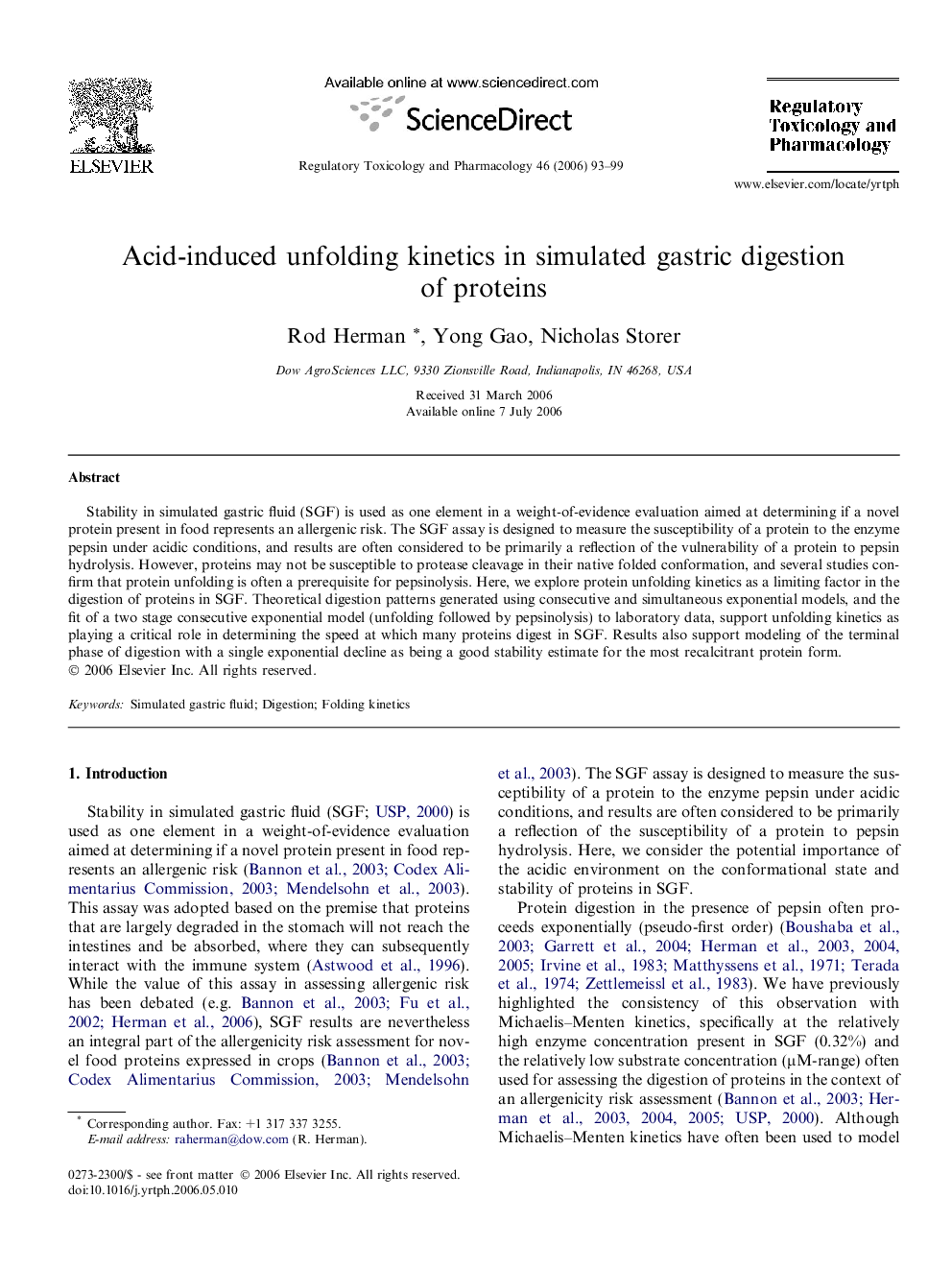| Article ID | Journal | Published Year | Pages | File Type |
|---|---|---|---|---|
| 2592973 | Regulatory Toxicology and Pharmacology | 2006 | 7 Pages |
Stability in simulated gastric fluid (SGF) is used as one element in a weight-of-evidence evaluation aimed at determining if a novel protein present in food represents an allergenic risk. The SGF assay is designed to measure the susceptibility of a protein to the enzyme pepsin under acidic conditions, and results are often considered to be primarily a reflection of the vulnerability of a protein to pepsin hydrolysis. However, proteins may not be susceptible to protease cleavage in their native folded conformation, and several studies confirm that protein unfolding is often a prerequisite for pepsinolysis. Here, we explore protein unfolding kinetics as a limiting factor in the digestion of proteins in SGF. Theoretical digestion patterns generated using consecutive and simultaneous exponential models, and the fit of a two stage consecutive exponential model (unfolding followed by pepsinolysis) to laboratory data, support unfolding kinetics as playing a critical role in determining the speed at which many proteins digest in SGF. Results also support modeling of the terminal phase of digestion with a single exponential decline as being a good stability estimate for the most recalcitrant protein form.
